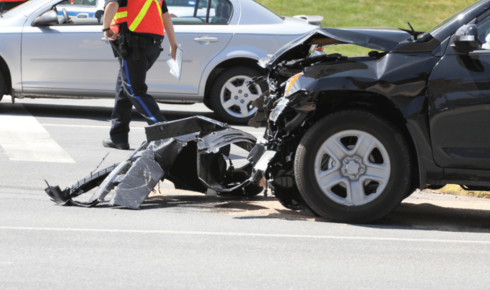
Rideshare services, such as Uber and Lyft, have become an integral part of life in Indianapolis. With thousands of trips happening daily, accidents involving Uber vehicles are inevitable. What makes these accidents unique is the complex web of liability and insurance coverage involved. If you were injured in an Uber accident as a passenger, another driver, or a pedestrian, it is essential to understand your rights under Indiana law.
Why Uber Accidents Are Different
Unlike traditional accidents, Uber accidents involve multiple layers of potential responsibility. Uber drivers are considered independent contractors, not employees. This distinction means that Uber may not always be directly liable for the actions of its drivers; however, it does provide a substantial insurance policy that covers passengers and others in certain situations. The key issue is whether the driver was using the app at the time of the crash.
How Uber’s Insurance Coverage Works
Uber’s insurance coverage changes depending on what the driver was doing at the time the accident occurred. If the driver had the app off, their personal auto insurance applies. If the app was on but they were waiting for a ride request, Uber provides limited liability coverage. If the driver was en route to pick up a passenger or had a passenger in the car, Uber’s $1 million liability policy applies. This policy can cover medical expenses, property damage, and other losses for passengers, pedestrians, and other drivers involved in an accident.
Passenger Rights in an Uber Accident
As a passenger, you are rarely at fault in an Uber accident. If you are injured, you have the right to file a claim against the Uber driver, another negligent driver, or Uber’s insurance company. Even if another driver caused the accident, Uber’s uninsured or underinsured motorist coverage may step in to ensure you are compensated. Passengers also have the right to pursue compensation for medical bills, lost income, and pain and suffering.
Other Drivers and Pedestrians
If you are hit by an Uber driver while walking, cycling, or driving, you may also be covered by Uber’s insurance, depending on whether the driver was logged into the app. If they were actively working, Uber’s policies likely apply. If they were off duty, you may need to pursue the driver’s personal insurance.
Comparative Fault in Indiana
Indiana follows a modified comparative negligence system. This means that if you were partially at fault for the accident, you can still recover damages as long as you were less than 51% responsible. Your compensation will be reduced by the percentage of fault attributed to you. This rule may apply, for example, if a pedestrian crossed against the light or another driver made an illegal turn.
Steps to Take After an Uber Accident
If you are involved in an Uber accident in Indianapolis, take the same steps you would after any car accident. Call 911 so that police and medical responders can come to the scene. Take a screenshot of your ride details in the Uber app to preserve evidence of your trip. Collect the driver’s contact and insurance information, as well as the information of any other drivers involved. Photograph the scene and your injuries if possible, and seek medical treatment immediately. Report the accident to Uber through the app, but avoid giving detailed statements until you speak to an attorney.
The Importance of Legal Representation
Insurance companies representing Uber and its drivers are highly skilled at minimizing payouts. They may argue that your injuries are not severe or that another driver is solely responsible. An Indianapolis Uber accident lawyer can determine which insurance policies apply, gather evidence, negotiate with multiple insurers, and take the case to court if necessary. Having legal representation ensures that you are not pressured into accepting a settlement that does not fully cover your losses.
Frequently Asked Questions
Does Uber’s insurance cover me if another driver is at fault for the crash? Yes, Uber’s uninsured/underinsured coverage may apply if the other driver lacks sufficient insurance.
Do I sue Uber directly? Usually, you do not sue Uber directly. Instead, claims are filed against their insurance policy.
How long do I have to file a claim? In Indiana, you have two years from the date of the accident.
Can I file claims with both Uber and my own insurance? Yes, though your insurer may coordinate benefits with Uber’s policy.
What if the driver was off duty? If the driver was not logged into the app, only their personal insurance applies.
Conclusion
Uber accidents in Indianapolis are more complicated than standard car crashes, but that does not mean you are powerless. By understanding how Uber’s insurance works, knowing your rights as a passenger or driver, and seeking legal guidance, you can ensure you receive fair compensation for your injuries. An experienced Uber accident attorney can untangle the complexities of these cases and fight to protect your best interests.
